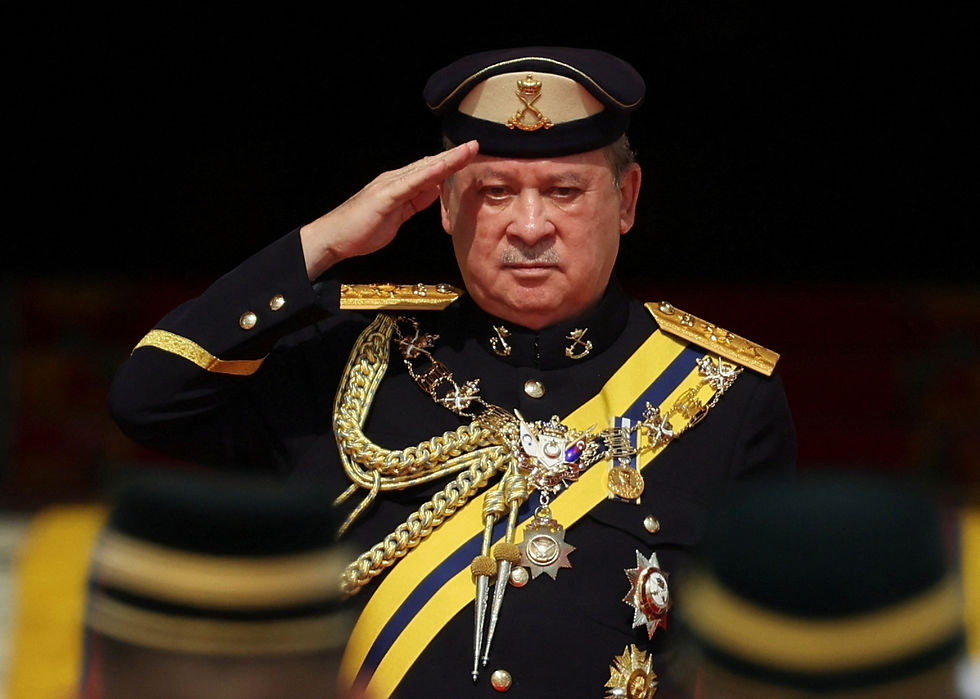Sultan Ibrahim of Johor state installed as Malaysia's 17th king


Sultan Ibrahim from the southern state of Johor in Malaysia became the country's 17th king on Wednesday. He took the oath of office in a ceremony at the national palace in Kuala Lumpur. While the monarchy in Malaysia is mostly ceremonial, its influence has grown in recent years. This has led the king to use rarely-used discretionary powers to address political instability.
In Malaysia, a unique monarchy system involves the heads of the country's nine royal families taking turns to be the King, known as the "Yang di-Pertuan Agong," every five years. Sultan Ibrahim, 65, succeeds Al-Sultan Abdullah Sultan Ahmad Shah, who is returning to lead his home state of Pahang after completing his five-year term as king.
Although the monarchy is generally seen as above politics, Sultan Ibrahim is known for his forthrightness and outsized personality, often expressing opinions on the country's political issues. He has a significant collection of luxury cars and motorbikes, and his business interests range from real estate to mining, including a stake in Forest City—a $100-billion China-backed land reclamation and development project off Johor.
Before his installation, Sultan Ibrahim stated to Singapore's The Straits Times newspaper that he intends to be an active monarch. He proposed that Malaysia's state oil firm, Petroliam Nasional, and the country's anti-corruption agency report directly to the king. He also talked about reviving a stalled high-speed rail link project between Malaysia and Singapore, with a border crossing through Forest City.
Prime Minister Anwar Ibrahim later downplayed Sultan Ibrahim's statements, saying that all opinions can be discussed without disregarding the federal constitution, as reported by state media.







Комментарии